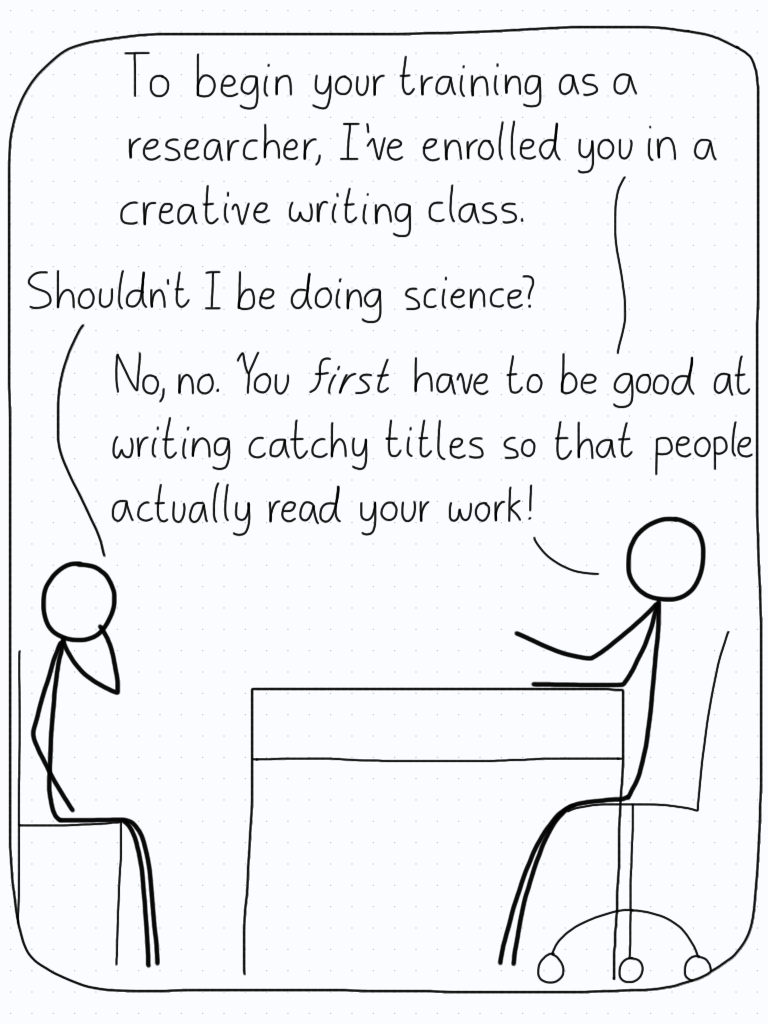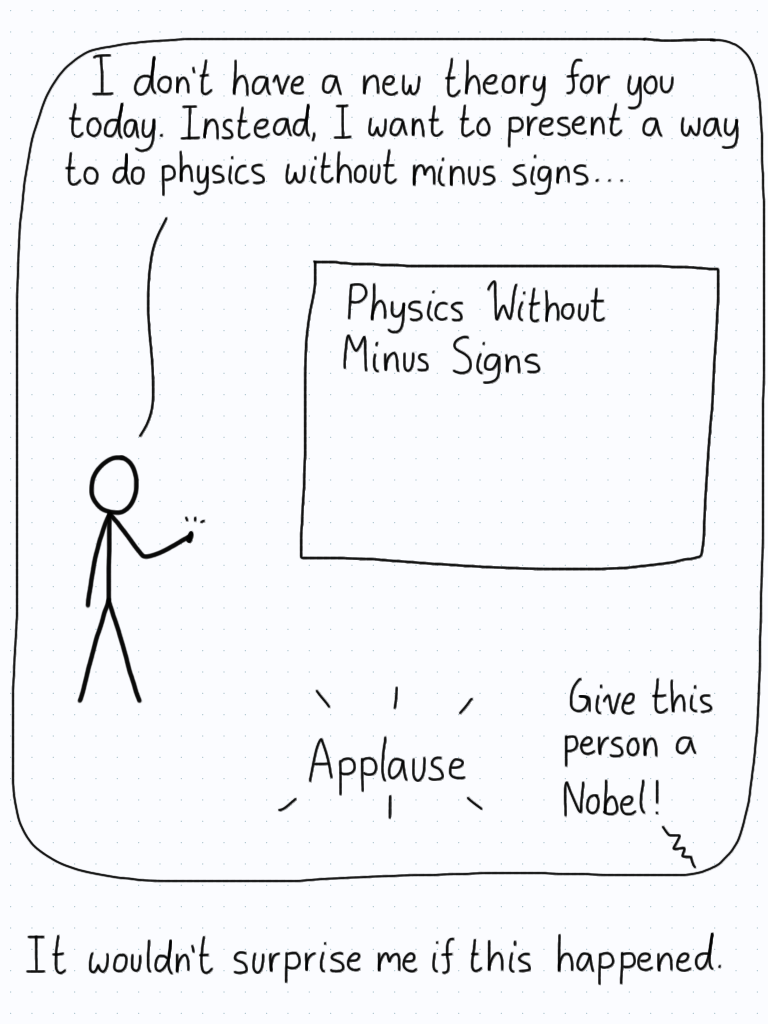 Comics about mathematics, science, and the student life.
Comics about mathematics, science, and the student life.
Creative Writing

“This sounds more like manipulation than science.”
“Hey, I’m just looking out for you as your supervisor.”
23 Oct 2019Legal Moves

Did you hear that? It’s the sound of mathematicians rolling around in their graves.
21 Oct 2019Student Confidence

I mean, I’m sure you were listening when she explained what we had to do, right?
18 Oct 2019Briefly Explain

Let’s hope the teacher is impressed by the amount of writing I’ve given. Surely that’s a signal for quality!
16 Oct 2019Law of Bad Timing

“Professor, can you come touch my test?”
“Okay, I can collect it if you want.”
“No! I just want to stimulate my brain to think the test is over, so I can get some better ideas.”
14 Oct 2019Discounting

My specialty is magnifying the negative part of any opportunity by a huge amount.
11 Oct 2019Postcard Knowledge

The information is hidden in plain sight. You just have to go through years and years of education to decode it!
09 Oct 2019No Minus Signs

The Nobel Prize of 2019 is awarded for the astonishing advances in the language of physics, removing the need for pesky signs that vex both students and seasoned researchers alike.
07 Oct 2019Welcome Sign

I’m not joking. If you have questions about the homework, go pester a grad student. Isn’t that what they are there for?
04 Oct 2019